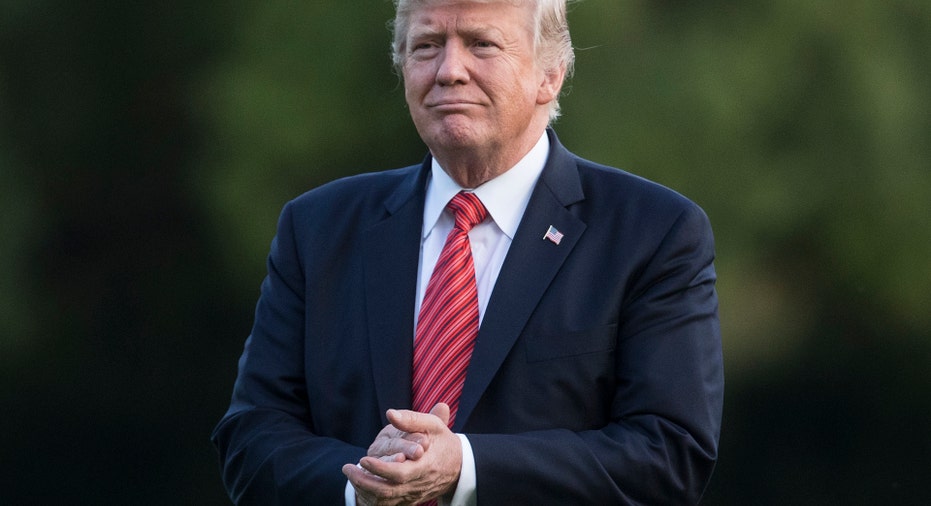Trump to begin tax reform blitz in Missouri

Following a whirlwind tax tour by chief Republican lawmakers, President Donald Trump will take the baton as he visits Springfield, Missouri on Wednesday to begin his leg of the race to complete one of his key campaign promises before year’s end.
The president is scheduled to visit a company in Missouri that manufactures fans, blowers and laboratory exhaust equipment. He is not expected to give a detailed speech on specifics, but rather rally momentum for a post Labor Day tax reform effort focused on simplifying the tax code and lowering rates. Missouri will be the first stop of many for Trump’s tax tour in the coming weeks.
During an interview with The Financial Times on Friday, National Economic Director Gary Cohn said Trump’s agenda “is going to completely revolve around tax reform” moving forward.
When it comes to the content of the tax reform overhaul, Cohn reiterated some of the key principles laid out earlier this year by the White House, including the elimination of most personal deductions, with the exception of charitable, mortgage and retirement. The GOP also intends to eliminate the death and estate taxes and to slash the corporate tax rate “as low as possible.”
Last week, House Speaker Paul Ryan (R-Wis.) and House Ways and Means Committee chair Rep. Kevin Brady (R-Texas) rallied support at prominent U.S. businesses across the country, including Boeing (NYSE:BA), and Intel (NASDAQ:INTC). U.S. business leaders are urging action among Republicans to level the competitive playing field for American companies through a tax code overhaul.
The administration and GOP lawmakers have set an end-of-year timeframe by which they expect the tax legislation to be completed. While some believe that timeline is aggressive under any circumstance, Republicans also have numerous other challenges lying in their path. While the broad, sweeping principles upon which tax reform will be based have been set by the White House and Republican leadership, the details have yet to be fine-tuned. There is still disagreement, for example, on how significantly to decrease the corporate tax rate and whether to make the legislation revenue neutral.
Additionally, when lawmakers return from recess in September they will have a tall to-do list of must-pass items to accomplish before tax reform can be addressed. Those include raising the United States’ borrowing authority before the end of September and passing a spending bill before the onset of the new fiscal year in October or face a government shutdown. Neither of those debates is expected to be completely pain-free.



















